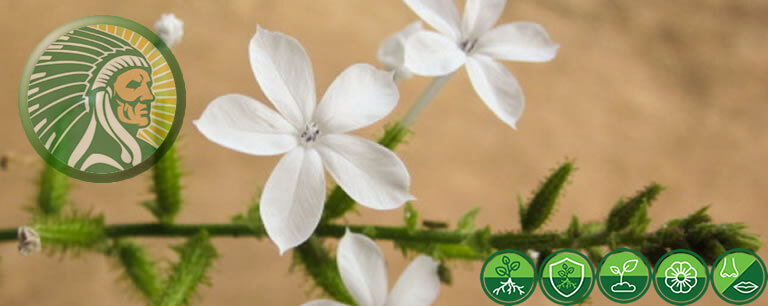- Choctaw L
- News and advice on hydroponics culture indoors and outdoors!
- 90 likes
- 38794 views
- 0 comments

Short description of how Plumbago Zeylanica L. was used in ancient Ayurveda for human health as well as for plant care.
Plumbago zeylanica L.
Plumbago is mainly native to old tropical. It is cultivated for medicinal purposes. Chitrak is densely found in south India and in Sri Lanka. In India it is very present in Bengal and Uttar Pradesh.
Vernacular Name: Tamil: Chitthira moolam, Eng. - Ceylon lead wort
Family: Plumbaginaceae
The name Plumbago is derived from word "plumb" and commonly Plumbago Zeylanica is known as Ceylon Leadwort, Doctor Bush and Wild Leadwort. Chitraka is one of the very effective digestive and carminative herb. In ayurvedic medicinal system Chitrak is considered as Rasayan. This versatile herb is three colored flowers (red, white and blue). It is a very important medicinal herb and roots of this herb are very effective for skin disorders, cardiac disorders, hepatic disorders and disorders associated with nervous system.
Mode of utilization:
Chitrak roots are poisonous in nature and for its use purification of Chitrak roots are very important. The roots are cut into small pieces and immersed in lime water for three hours. Immersed roots are taken out and again dipped in lime water. This process is repeated a precise number of times with some other specific herb extracts to finally obtain pure Chitrak.
In Agriculture: The extract is used to control various pest infestation in crop. It is broadly used in the Bengal region to ease the circulation of plants sap thus enabling plants to efficiently resist to damages of bacterial attacks.
For human (Traditional Usages): Powdered root is mixed with goat's milk and taken internally for stomach trouble.
Chemical composition and Properties:
Contains plumbagin which externally is a strong irritant & a powerful germicide, stimulates muscular tissue in smaller doses & paralyses in larger one; stimulates contraction of the muscular tissue of heart, intestine & worms; stimulates secretion of sweat, urine & bile & has stimulant action on nervous system. Roots contain plumbagin, 3-chloroplumbagin, 3,3-biplumbagin, chitranone, zeylinone, isozoeylinone, elliptinone & droserone.

![]()
Translated from the original English text by Yukha

Comments (0)